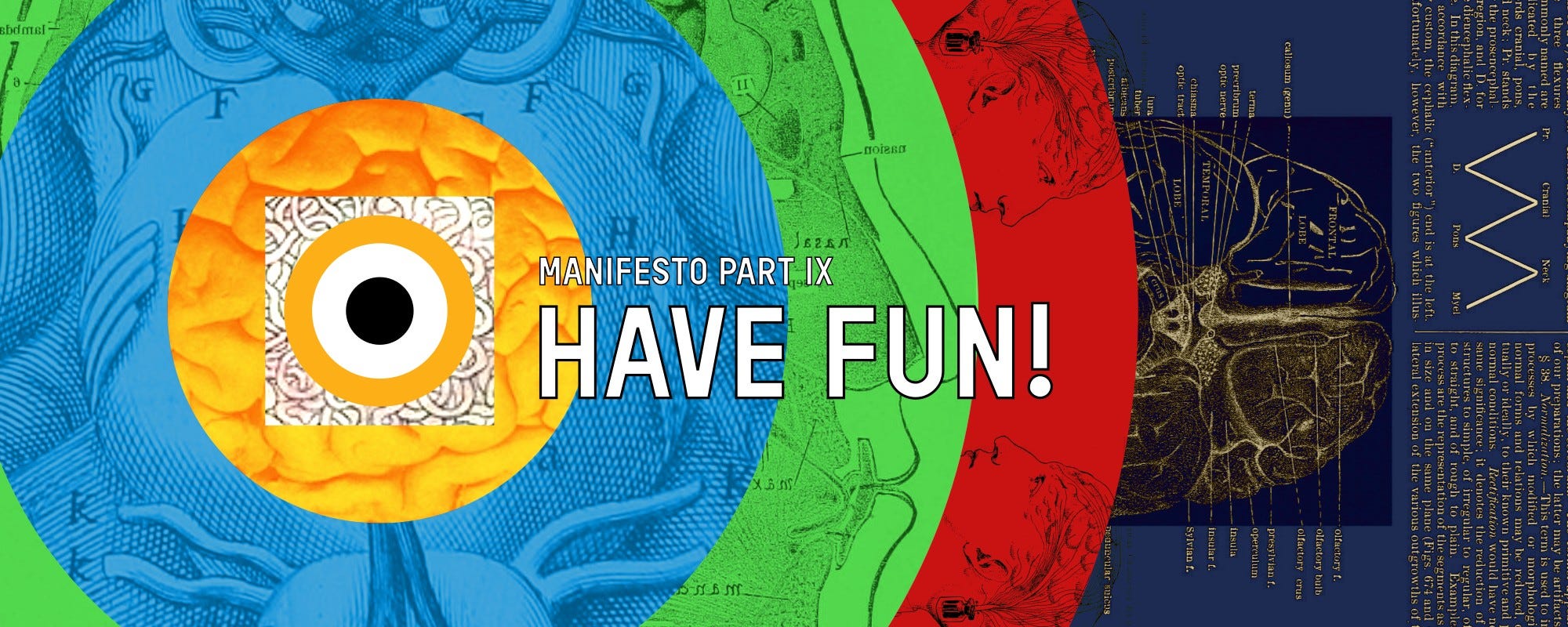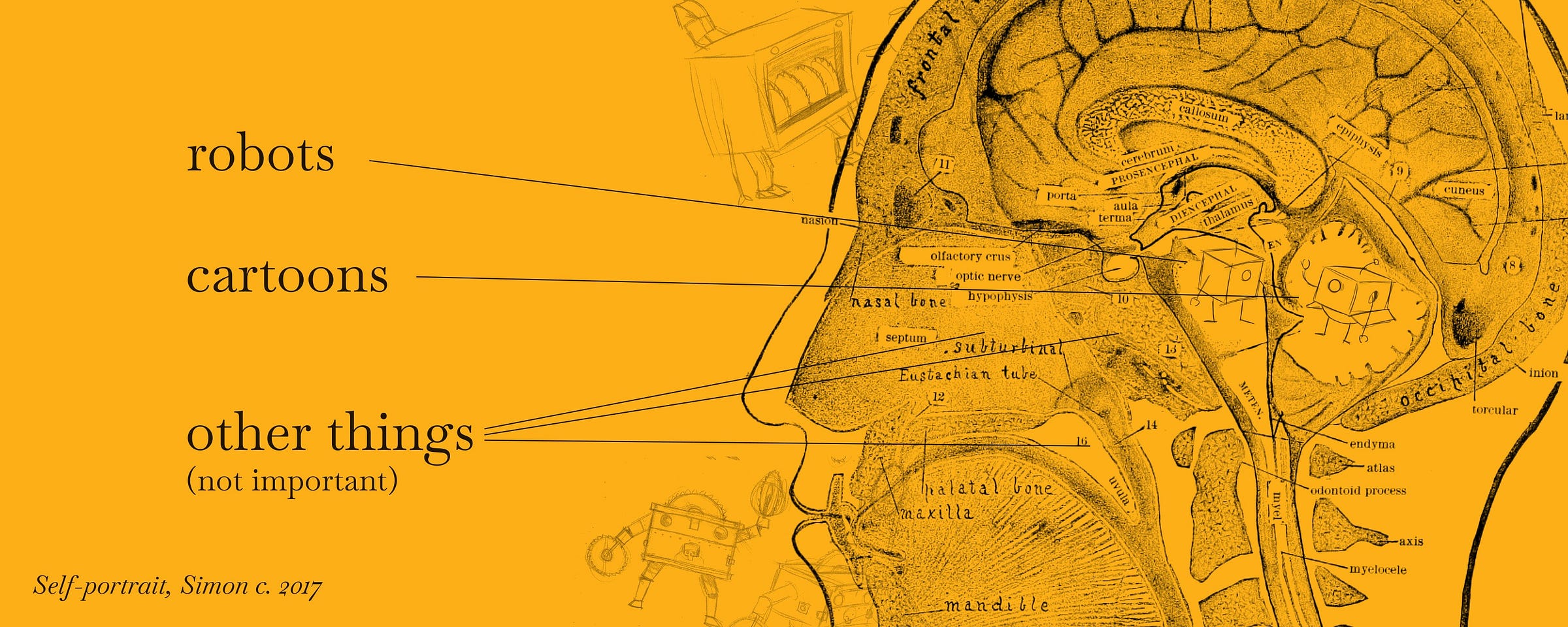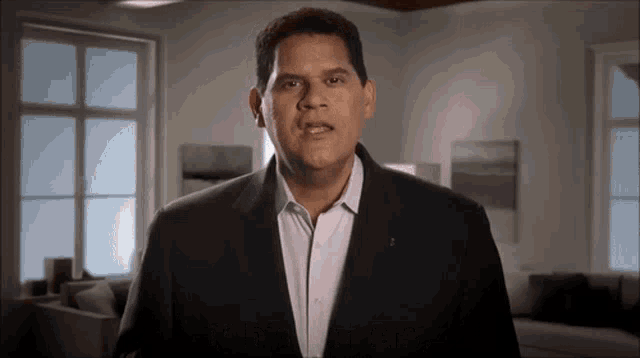This is the secret to actually making the things you want to.
Manifesto Part 9: Have Fun
Hi,
This is the ninth (and final) piece in a series of deep dives into the Everyone's Creative Manifesto. This series has been a fun (more on that below) and challenging thing to write. It's interesting to dig deeper into the things you say you value and discover what is hiding there. If you haven't read them all, you can read the other parts by following the linked headings here.
I'd also love to hear what you think about the manifesto and how these ideas land for you. Leave a comment!
Now, the conclusion of the manifesto.
Have Fun
We have an incredible capacity to remove joy from the most important things in our lives. Never forget that, as important as it might be, it should also be fun.
Let's all take a deep breath.
Things are pretty heavy out there, aren't they? It can feel like the walls are closing in on you from every direction. There are global issues of massive, society-moving scales that are being piped into the core of our lives and that most of us feel we have little power over. It can all make things seem a bit bleak.
What to do? I'd argue that you should do something with that energy. You should make something. Unsurprisingly, I believe our creativity is the way we can affect change and move things in a better direction for all. But it all feels a bit intense, doesn't it?
When you work on something that is important to you, it can feel right to take it very seriously. When things hold great meaning for us, we treat them with reverence, severity and respect. Interestingly, though, we don't always realize how that can tip over from being a humble emotion into being a distracting and negative one. I can't be the only person who has snapped out of a frustrated moment of work to ask myself "Wait, isn't this supposed to be something I like to do?"
The reality is that we have an incredible capacity to rob ourselves of joy. Especially when we're working on things that matter (something that I've spent eight other manifesto pieces arguing that you should be doing), we can trick ourselves into thinking that cold dispassion is the same thing as taking something seriously (or, conversely, that treating something with levity means it doesn't matter to you). This is a really big problem, because if you're going to do something that requires thought, focus or care, then you need to want to do it. It needs to, on some basic level, be at least a little bit fun.
My Personal Discovery of the Power of Novelty and Fun
In 2022, I realized that I have ADHD. That may have been obvious to literally everyone else in my life, but it came as a bit of a shock to me and led to a lot of introspection (and a decent amount of existentially spacing out while staring at the ceiling dramatically). Eventually, this led me trying to understand more of how my brain works and how I can work with it to do the things that matter to me.
Enter: novelty and fun.
I'm a fun guy! Trust me! But I can also be an incredibly intense and serious guy, too. The dissonance of this duality is most obvious when I become humourless and frustrated about something like a cartoon I'm making, or have a tantrum because the fun little project I'm doing because I want to hits an unexpected bump in the road. This manifests most often, though, in my ability to lose interest entirely in things that I know I actually really enjoy and want to do.
Through learning about how my brain works, I've come to realize the value of novelty and fun in the work that I do. That means that when I start to feel the joy draining out of something that is meant to energize me, I now try to ask myself what would make it more interesting. That can mean trying a new tool, changing up my workspace, taking an extended break to do something inspiring, or even just reminding myself that every one of us is mortal and that our planet will eventually be consumed by the expanding sun and that ultimately, none of this matters and so there's no reason to worry (maybe that last one isn't energizing to everyone).
The point is that it's all about framing. Telling yourself a different story about the things you're working on can entirely change to way you feel about the work. That, in turn, can make the work more interesting and, crucially, more fun.
Why Fun Matters
Some people's work is decidedly un-fun. Sometimes you can't do anything about that. But, if you're honest with yourself, does that always apply to you? Is there nothing you enjoy about the way you have chosen to spend your days?
I imagine that we all have this internal force of joy-entropy. Unless we are actively putting energy into keeping the fun front of mind, things start to sort of bleed out into a diffuse grey mush, leaving us feeling more or less neutral about what we're doing. When you add in other external stresses to that feeling (time stress, financial stress, interpersonal stress, political stress, global-collapse-of-environment-and-civilization stress, etc.) then it's hard to maintain that neutrality and we end up feeling bad about something that we started out feeling happy about.
This is important because fun is energizing while despair, depression, anger and fear are not. Especially when it comes to our creativity, if we don't find a way to enjoy the moment-to-moment of what we're doing, then we're simply not going to do it (or, in the case of work, we will come to resent that we need to do it despite not wanting to). That negativity is corrosive. It can't help you create anything of value.
Negative Inspiration is Different than Negative Energy
I don't want to conflate negative feelings in general with negative energy surrounding your creative work. There is tremendous value in embracing the full spectrum of your emotional experience and using all of that to fuel your creativity. You can harness great creative energy from anger or frustration or sadness, but if you allow that emotion to take over how you see and experience everything then you're simply not likely to do anything with it.
I try very hard to both embrace my emotions and allow myself to be separate from them. This is easier said than done, but it's the key to having fun when you make something, even if that something is about a negative feeling. This is the difference between enjoying making a work of art about a bad experience (maybe even finding catharsis in redirecting that energy) and becoming so depressed or enraged by that experience that you can't create anything at all. One of these uses that energy, while the other lets it fester and rot.
Letting Go of Your Ego
I think the key to having more fun with your creative work has a lot to do with taking yourself less seriously.
When I think back to times when I've robbed myself of the joy of a creative project, instead becoming consumed by frustration, depression or boredom, it typically happened when I was too focused on myself and not on the experience or the work itself.
One simple example that comes to mind is the difference between my experience early on in art school compared to my final year. When I started my university Illustration program, I fancied myself quite the clever artistic mind. This resulted in me suffering through almost every project because I was so concerned with how interesting my ideas were, how advanced my technique was or how novel my combination of disciplines could be. Ultimately, I realize now how little I was actually thinking about learning, experimenting, playing and having fun while I was immersed in this very rare opportunity of spending years focused on my own ideas and work.
Luckily, I came (mostly) to my senses in my last year of university, when we began our fourth-year "thesis" assignment. This year-long project was incredibly daunting and represented a huge commitment to both a body of work and an idea that connected the work together. I watched a lot of people over-think this assignment and heard about just how stressful and tiring it was.
I don't know how it happened, but I'm really grateful that I realized that I didn't need to feel that way about it. Instead, I set the goal of making the project about something I could have fun with. I liked robots, I liked drawing robots, so why not just figure out a gimmick so I could spend the year drawing robots?
When I look back at that project and the core thematic message of the "thesis" (something about "true artificial intelligence would be just as silly as human intelligence, 'cause that's just what being alive is all about") I don't see that as being what the body of work was "about." Instead, I see it as actually being about finding the fun in my work and letting go of my ego. From that perspective, I think it was a huge success. That year, I created some work that I'm still incredibly proud of and I also created (and presented to my class for critique) some of the worst art I've ever made in my life. But I don't regret any of it because the point of it wasn't the output, the portfolio of work or the demonstration of my talent and brilliant thinking; it was about the experience of making something because I wanted to.
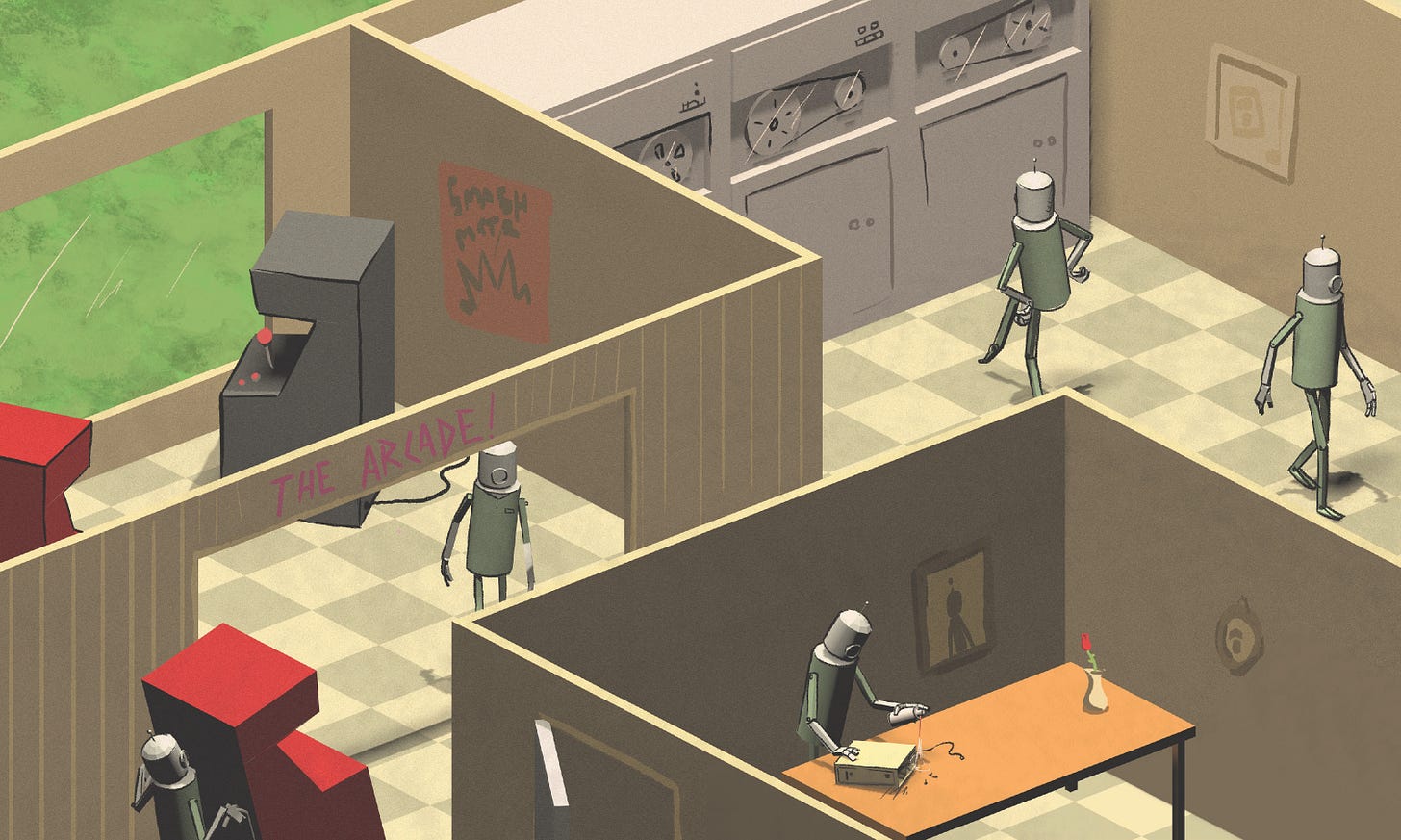
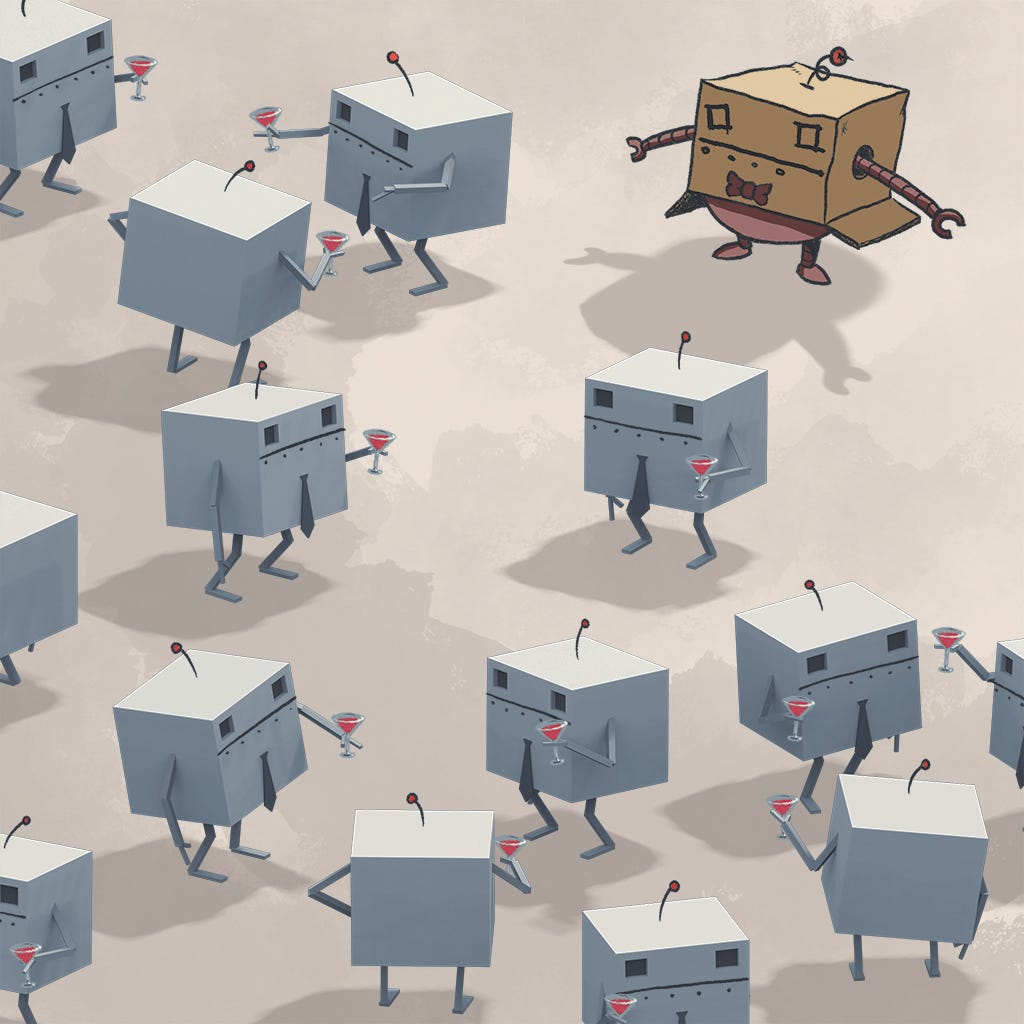
I look back on this work fondly because I had a fun time making it. I learned a lot that year because I was engaged in the process. The finished product isn't really that important to me. I got more out of it than you can see hanging on a wall, and I use that every day.
You Deserve to Enjoy Your Life
The burden of serious, important work often falls on the people who have no choice but to work on it. Meanwhile, in my experience, people with the most resources to enjoy every moment of their work and their lives still manage to find ways to convince themselves that they have something to be upset about. That means that people who are affected by injustice and inequality have less fun because they end up stuck doing the important but unpleasant work of trying to make things better, while the privileged people who benefit from our social imbalance also aren't having fun because it somehow makes them feel like their lives have more meaning if they're suffering.
That's a lot of negativity for a bunch of people who only get to be alive for a few decades.
Have Fun is the conclusion of the manifesto because it is a reminder that, no matter your situation and no matter what you do, you can try to enjoy something about the doing. All of this depends on a certain level of life's necessities being met, however, and so this idea only really works if we're all also trying to alleviate the suffering of others so that we all have the chance to enjoy our brief, temporary existence. Rising fun-tides should lift all party-boats...or something like that.
All that is to say that I'm aware of how naive this last part of the manifesto can seem. But that's kind of the point. Our lives are already bombarded with challenges and difficulties, and our ability to see the vast amount of suffering happening on a global scale can make our own positive experiences seem trivial, blasphemous or offensive. But remember that fun isn't the same thing as "manic, delusional joy." "Have Fun" isn't a call to deny the reality of the world and pretend everything is great so that you can have a nice day. We use the fun found in creativity to do something. Your creativity can make great change and have an effect on the world in unimaginable ways. But you need to actually do it if you want anything to happen. And you need to want to do it if you're actually going to show up and make it happen.
Life needs to be fun. Otherwise, what's the point of being here?
Have fun!
Simon 🐒
🔗 Links & Thinks 🧠
An aside to this idea that didn't quite fit in above is that making fun things can make life more fun for others. That's why I see value in cartoons, comedy and other seemingly apolitical and "meaningless" art (key word is “seemingly”). If your work allows others to access fun, they may then go on to make more of the same for others. I don't think it works the other way around. If your work depresses the shit out of everyone, then you may be creating a leak in our collective creative bucket. You may want to ask if you're Creating with Care.
To that end, here are some fun things people have created that, in turn, make me want to create things and have fun:
Whenever there's a new Captain Disillusion video
Everything ever made by Keita Takahashi
What about you? What fun things make you want to make and have fun? Spread the fun-love! Let me know in the comments.
The banner image for this piece uses images and artwork from the following sources:
Vaught's Practical Character Reader, L. A. Vaught, 1902 - via The Public Domain Image Archive
Untitled, Aoki Shukuya, 1772 - via The Public Domain Image Archive
Charle's Babbage's Brain, from "Description of the Brain of Mr. Charles Babbage, F.R.S", V. Horsley, 1909 - via The Public Domain Image Archive
The Lower Side of the Brain, Christopher Wren, 1664 - via The Public Domain Image Archive
Brain, Anatomical, Burt G. Wilder, 1901 - via Archive.org



